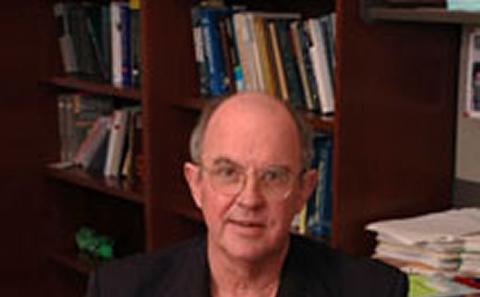Approaches in Protein Ligation - Masterclass Session 1 Seminar

- Time:
- 14:00 - 16:00
- Date:
- 13 June 2014
- Venue:
- Building 27, Room 2001 Chemistry University of Southampton Highfield Southampton So17 1BJ
For more information regarding this seminar, please email Bruno Linclau at B.J.Linclau@soton.ac.uk .
Event details
Visiting Professor Stephen Kent presents a masterclass in synthetic protein research.
Professor Stephen Kent, a distinguished visiting professor, is presenting the first of his masterclasses on the frontiers of research in synthetic proteins. These are informal tutorial-style sessions ideal for undergraduate summer students, postgraduates and postdocs in the fields of synthetic and biological chemistry.
This first session will focus on the principles and practices of protein ligation.
See also session 2, held on Monday 16 June at 14:00, focused on the principles of polymer-supported organic synthesis as exemplified in solid-phase peptide synthesis.
Speaker information
Prof Stephen Kent, University of Chicago. Professor Stephen Kent has pioneered modern methods for the total chemical synthesis of proteins, and has used these novel synthetic methods for unprecedented studies of protein structure and function. In 1992, Kent effectively solved the grand challenge of total protein synthesis by introducing the 'chemical ligation' principle, the use of chemoselective reaction for the covalent condensation of unprotected peptides in aqueous solution. In 1994, Kent and his colleagues extended this concept to 'native chemical ligation', the amide-forming thioester-mediated covalent condensation of two unprotected peptides at a cysteine residue. Chemical ligation methods are a break-through in protein science and for the first time have led to practical, reproducible, and general synthetic access to the world of proteins. Kent's work has also led to major therapeutic advances. His synthetic HIV protease enzyme was used as the basis for the highly successful worldwide programs in structure-based drug design that culminated in the development of the 'protease inhibitor' class of AIDS therapeutics. Later, Kent and colleagues reported the systematic design and total chemical synthesis of a 'synthetic erythropoiesis protein', an improved version of erythropoietin. Synthetic erythropoiesis protein is the largest synthetic protein constructever made; it displayed full biological activity and improved duration of action in vivo. The Kent laboratory at the University of Chicago continues to expand our understanding the chemical basis of protein function, particularly enzyme catalysis, and to demonstrate that knowledge by the design and construction of protein molecules with novel properties. Professor Kent has received dozens of prestigious awards including the 2009 Merrifield Award and the 2011 Bader Award. He will be at the University of Southampton from 9 June to 20 June 2014 as a visiting professor.